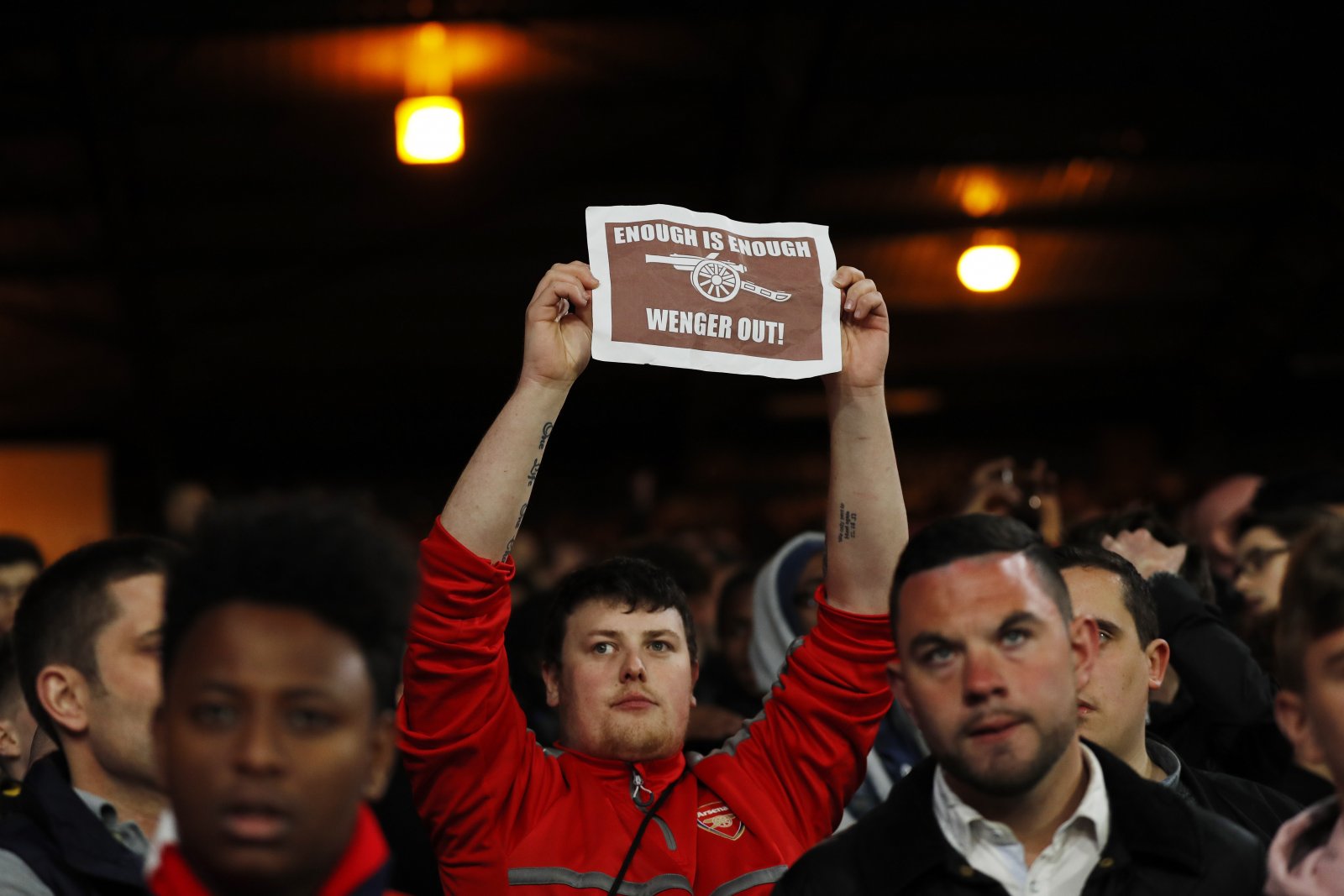Arsenal social media team sums up the mood around the club
If you’re an Arsenal fan, watching the Gunners’ 3-0 Premier League defeat to Crystal Palace at Selhurst Park on Monday night will have evoked the kind of feelings that you won’t have experienced too often over the past two decades.
They’re becoming more and more prevalent, though.
Arsenal haven’t won a Premier League title since 2004, a year they went unbeaten throughout the whole season in the process, nor have they been past the Champions League’s last 16 stage since 2010. The past seven years seem not so much to have been separate occurrences, but rather the same experience played on a continuous loop; the only change has been two FA Cup victories.
It hasn’t been enough to pacify an ever-growing number of discontented Arsenal fans. Trapped, as they feel they are, in a reality reminiscent of Jim Carrey’s character in the film The Truman Show, the fans of the north London football club are getting restless.
The mood has descended of late. Although the discontent has been growing, there always seemed to be an acceptance that this was a particularly vocal minority. That’s changing. And the club’s use of social media even seems to be tailored to the club’s new normal, too.
Running the social media channels for an English football club must be a thankless job at times. Not only are you tasked with being engaging without driving too far into ‘cringe’ territory – football fans aren’t usually happy when their club engages in ‘banter’, nor do they take too kindly to social media gimmicks – but you’re also right on the front line in a crisis. Judging the mood and acting accordingly can’t be easy, certainly if you’re not a PR expert.
It seems especially hard at Arsenal right now, where the anger amongst the fans is being played out so publicly on Fan TV channels, and mocked so horrifically by the rest of the internet on an almost daily basis.
And so, after Arsenal went 3-0 down to Palace on Monday night, it seems those at the reins of the club’s social media channels gave up just as the players did.
…#CPFCvAFC 3-0 (68)
— Arsenal FC (@Arsenal) April 10, 2017
After this tweet on the third goal, the next tweet was on the full time whistle.
Clearly keeping fans up to date on Twitter would have been futile at that stage anyway. Anything positive the club could come out with would have sounded so achingly out of place, and probably drowned out by the sound of every other Twitter account following the game in any case. As an Arsenal fan following the game on social media, there would have been no escape anyway.
In the end, it was probably a wise decision. The club had nothing to gain from continuing with the live coverage, only risking a backlash from the fans by tweeting anything at all during a game that felt less like a Premier League defeat and more like the arrival of the Four Horsemen of the Apocalypse.
But it serves to illustrate a thoroughly modern problem: when you’re in crisis management mode, do you really want the first line of defence to be the social media department, usually the player liaisons in charge of selfies and #banter? Probably not.
About author
You might also like
SPORTEL 2021: Day One Recap
This year’s prestigious SPORTEL convention kicked off in sunny Monaco today, welcoming a host of familiar faces as well as plenty of new ones. Doors opened at 8:30am with businesses
Six Founding Riders Set To Bring The Vision Of The UCI Track Champions League To Life
Olympic Champions, UCI World Champions and World Record holders join the new track cycling competition debuting in November 2021 The UCI Track Champions League is delighted to announce that six
Sports related spending to soar this summer as pre-pandemic life resumes
New insights from eBay Ads UK reveal the potential for brands to engage with an excited but nervous nation as sports events get back on track As pubs and indoor








